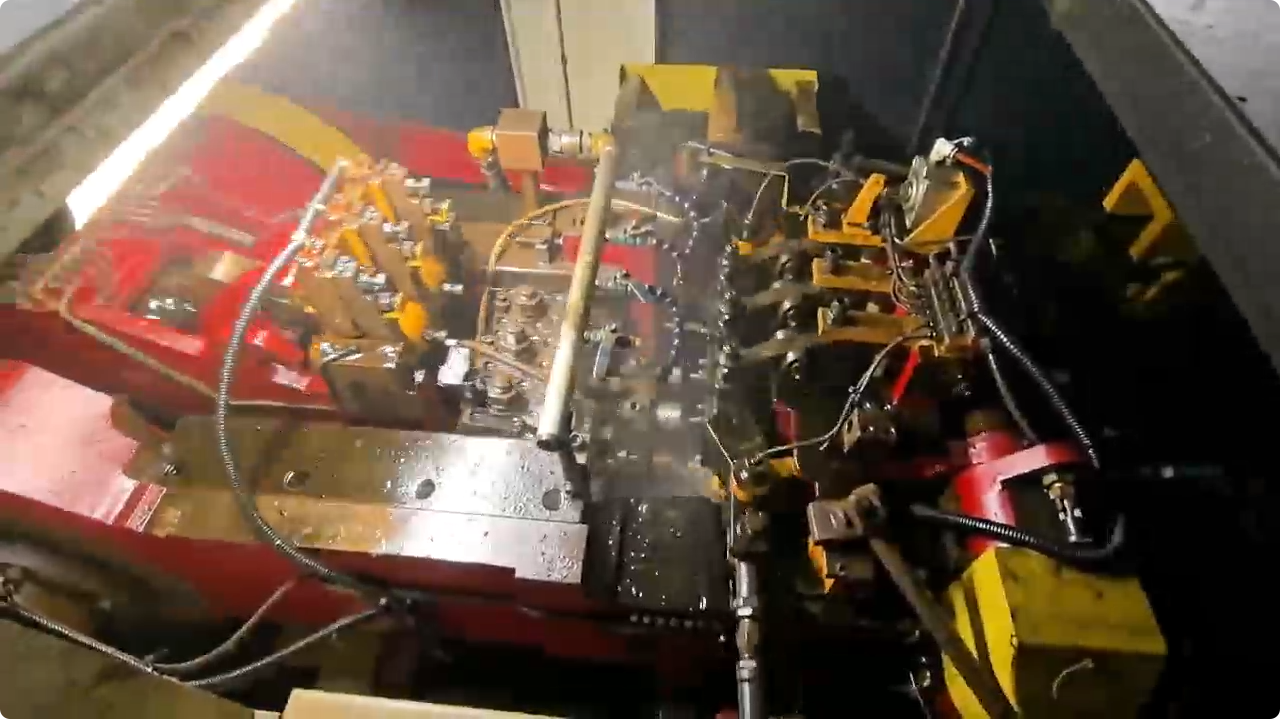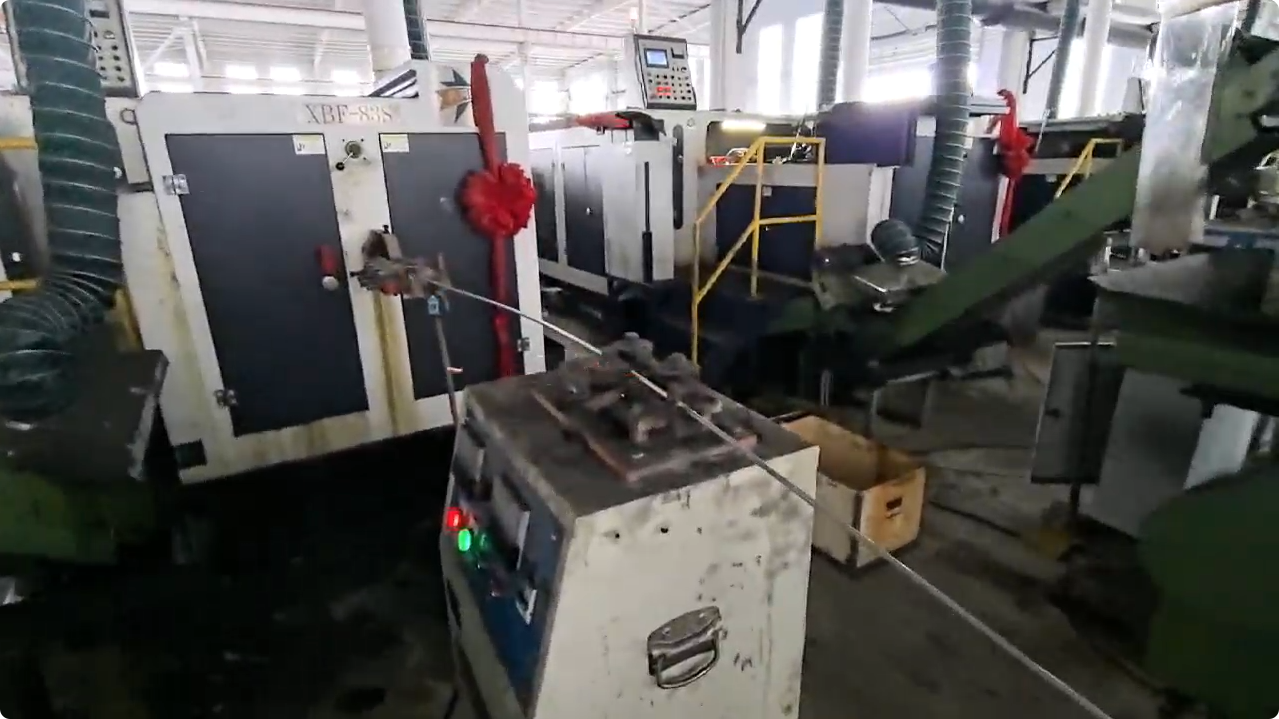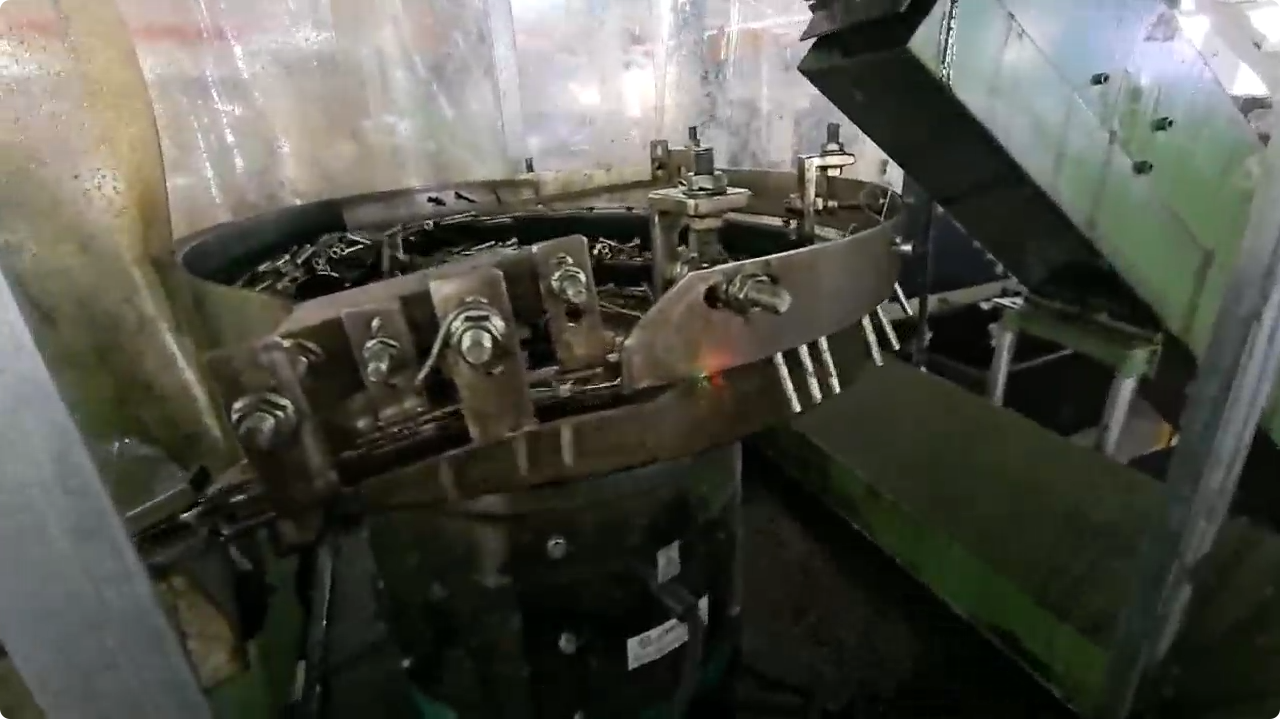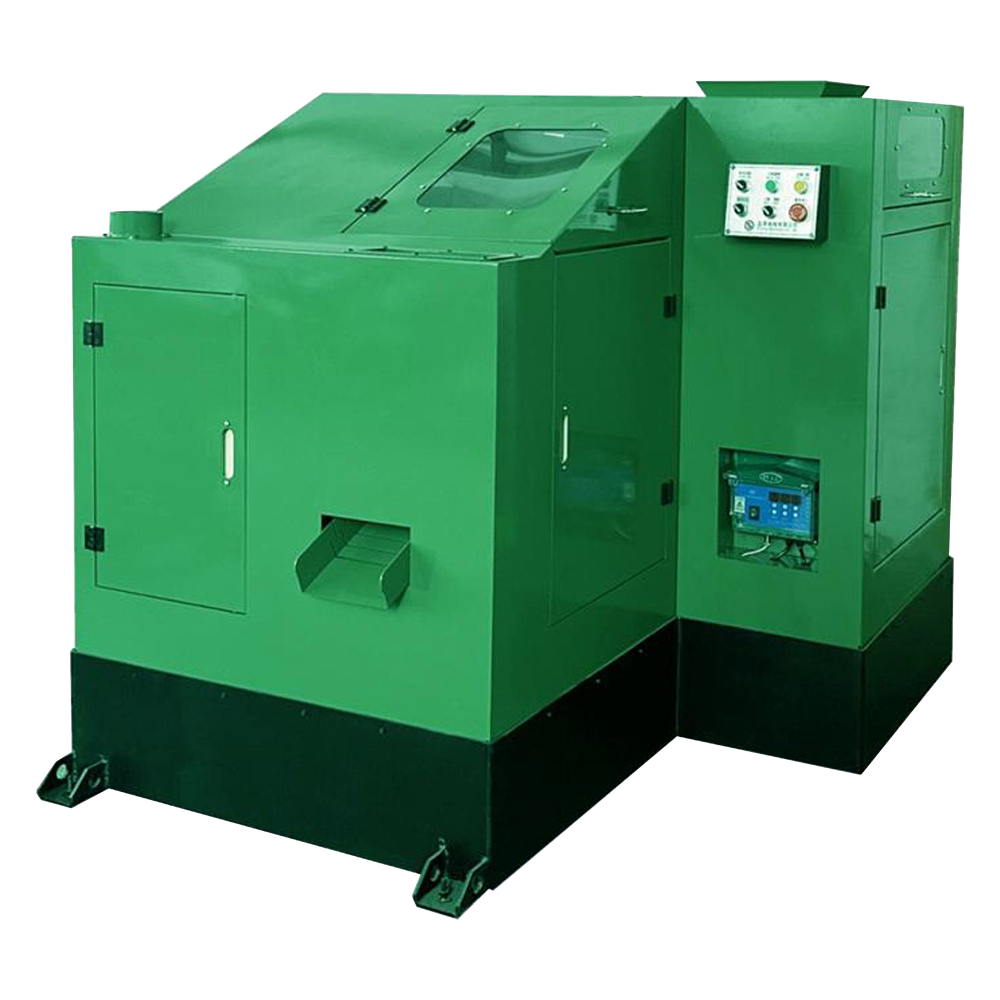Thread Forming Machine is specialized equipment that forms external threads on fasteners such as screws, bolts, and studs using cold forming technology. Unlike cutting, this process plastically deforms the material surface, producing stronger threads with excellent surface finish and fatigue resistance. The machine features automated feeding and rolling systems to ensure high-speed, consistent production. It is widely applied in automotive, electronics, and general manufacturing industries where thread quality and production efficiency are critical.
| Model | YTB-06/57 | YTB-06/82 |
| Blank Diameter(mm) | 3-6 | 3-6 |
| Thread Length(mm) | 50 | 75 |
| Moving Dies Stationary Length(mm) | 90*105-25 | 90*105*25 |
| Main Motor(HP) | 5HP-1/8HP | 7HP-1/8HP |
| Capacity PCS/MIN | 170-200 | 170-200 |
| Overall Dimenslon L*W*H(mm) | 190*150*1600 | 190*150*1600 |
| Weight Approx(kg) | 1800 | 1800 |



High-performance alloys can be difficult to cut without causing micro-cracks, surface defects, or stress concentrations. Thread forming, a cold-deformation process, reshapes material rather than removing it, preserving the alloy’s structural integrity. Using Thread Forming Machines, manufacturers achieve clean, consistent threads even in hard or exotic metals, ensuring the final fasteners retain maximum strength and fatigue resistance.
Industries such as aerospace, automotive, and energy storage increasingly rely on lightweight alloys to improve performance and reduce weight. Thread Forming Machines allow engineers to create compact threads that handle high loads, enabling the design of lighter, more efficient components without compromising safety. This capability encourages innovation in product design and materials selection.
Unlike cutting methods that produce chips and waste, thread forming conserves material by displacing it to create threads. For costly alloys such as titanium or specialty steels, this results in significant savings and a more sustainable production process. High-speed, precise forming also reduces the need for post-processing, further cutting operational costs while maintaining high quality.
With the continuous development of new alloys and performance requirements, manufacturers need tools that adapt quickly to changing demands. Thread Forming Machines provide the flexibility to handle a variety of materials and thread specifications, ensuring fast adaptation to next-generation products. They are not just machines—they are strategic investments in future-ready manufacturing.
As the demand for advanced alloys grows, Thread Forming Machines enable the production of stronger, precise, and durable threads, supporting innovative designs and reducing waste. For manufacturers aiming to stay ahead, adopting this technology is a practical step toward building the fasteners of tomorrow.
